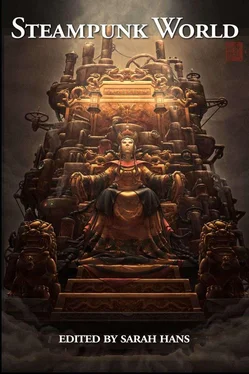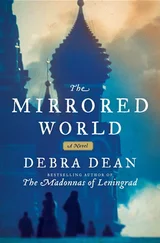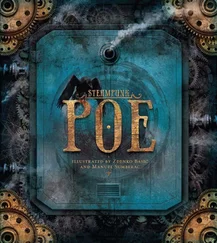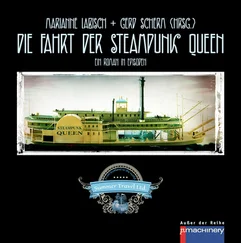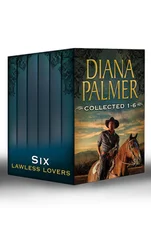Wilson clung to the bulwark’s head-high gunwale, hauling himself forward, hand over hand. He encountered a living obstacle: Yoka, who apparently had the same thought. His metal hand took more effort to operate but gave him a surer hold.
Side by side they inched upward. The fires grew unstoppably, unreachably. It was hopeless.
Yoka glanced overhead at the envelope of rubber-coated barkcloth. Filled with explosive hydrogen gas. “We must cut the lines.”
“We’ll die,” Wilson objected.
“No.” He reached one of the ropes tethering gondola to envelope and began to climb. “I’ll open the vent first and lower us.”
The way to the deck level vent control was blocked by the fire. “But how will you—”
A penetrating scream rose above the general wailing, then fell further and further away. Wilson pulled himself up to sit astride the gunwale and caught sight of a man pinwheeling to earth sans jumpsheet. The trees below looked no taller than lettuces.
“That was the prisoner,” said Yoka. “The others pushed him out.”
“We’ll never know why he did this, then.” Wilson commenced shinnying along the gunwale like a child sliding up a bannister.
“I believe he had more than the one boy held hostage,” Yoka shouted.
“What?” It was becoming hard to hear Yoka as the distance between them widened. A logistical concern sprang suddenly to mind: he’d have to walk across the burning deck to cut the lines connecting it to the airbag. They were as far from reach as the vent release.
“Just before the spy set us on fire, I overheard his boy ask him where was his twin. Another boy or girl.”
A second hostage. It seemed obvious now. “Do you have a kniver?”
“Here. Catch!” The polished brass of the knife-throwing gun slipped through Wilson’s fingers. Fortunately it landed on the deck instead of following the arsonist to earth. He retrieved it, then scrambled onto the gunwale again with the kniver clenched between his teeth. He heard Yoka yelling something but couldn’t understand what he said.
Sixteen-blade magazines for Winthrop’s latest model, if Wilson remembered rightly. Enough, if he didn’t miss a single shot. If the kniver were fully loaded. Madness.
The heat stopped him. He leaned out to his left. A cool wind blew upwards from rapidly enlarging trees and pools.
It must be time.
Wilson was an excellent shot under normal conditions. Which did not usually include wracking pain and exhaustion, but always, always, the threat of death. He aimed carefully. The first line parted. The second, third, fourth. They’d been damaged by the flames. The fifth seemed at first only to fray. Would he have to waste another blade? Seconds passed till it gave way.
The gondola lurched and Wilson held desperately to the slick gunwale. It looked almost level now. He nodded. Naturally. The lift lost because the fore end no longer hung from the airbag was counteracting the uneven distribution of terrified passengers, and the abandonment of the stabilizer levers.
He was amazed he could consider the matter so calmly.
The sixth line, exactly opposite his present seat, was obscured low down by the advancing flames. Wilson aimed above them. This time he did need two shots. No help for that.
He retreated to the deck and shot away the seventh line. Half done. Almost. He’d never finish soon enough. They were going to crash burning into the swamp. His ship, his crew, his command.
He took aim at the eighth line but an Oo-Gandahn fighter got in the way, smiling and brandishing a spear. Stupid woman! “Go! Mwanamke! Go!” He flourished the kniver, indicating she should move aft, but she only grinned and began sawing away at the line with her weapon.
New shouts died on his lips. She understood! Turning to the line directly behind him, he shot it. Three times, but he had ammunition to spare now. The Oo-Gandahn finished and went on to the next starboard line. This one took her longer. Evidently her spear’s point was dulling. She called out something and took a long machete from the man who answered her. He didn’t seem to favor the idea. Wilson lost sight of the disagreement as he dashed to his next target. One shot only this time.
But now he was in among the crowd of passengers. None of them spoke English. Why should they? Confused and angry babbling greeted him on all sides. What had happened to his men? He caught a brief glimpse of a couple of them stationed roughly where Kalala’s steering wheel ought to be. The twelfth line—thirteenth if his assistant had succeeded—was right there. A clear shot. He raised the kniver. A blow to his back threw off his aim—he barely maintained his hold on the gun. He pushed his way to the bulwark and braced himself, tried again. Bingo!
Shoving hard he got through to the last of the port lines. Here were the slave children, huddled together, so tightly packed there was no path between. The only road was up. Wilson climbed the line with cramping arms and legs. He craned his neck to look for Yoka. No luck.
Kalala ’s gondola dropped precipitously. The deck lay at a sharp slant. All lines to the envelope but this one and the stern’s were loose. Cries of horror, wordless screeching—bodies tumbled down into the relentless fire or over the gunwales into the green and black swamp.
Wilson pointed and shot anyway. The knife hit. The gondola jerked again and more passengers fell.
Two knives left. Wilson aimed down and pulled the trigger. Its last tie to the gondola severed, Kalala’s envelope rushed skywards, whipping him around furiously around at the end of the cut line. From below came an enormous hissing splash. Wilson dared to look down. The gondola was in a single half-charred piece. People moved on it, swam and waded around it. They sank further and further away. Or rather, he and the envelope rose—and Yoka also, he hoped.
The higher one went, the colder and thinner the air. Without the gondola’s weight he’d—they’d—fly too high to breathe. Wilson attempted for a few moments to slow his twisting and spinning, to steady himself by wrapping the line’s slack around his wrist. He gave up. The envelope was big; how could he miss? Praying not to hit Yoka, he shot his last blade.
Falling, falling—yet the envelope acted like a giant jumpsheet. What went up must come down, but at least at a survivable speed. Dizzy, ill, aghast at the deaths he knew were his responsibility, Wilson still clung to hope something would go right. Something had to.
Something did.
Leopold lost. And Wilson and Yoka, drifting eastward on prevailing winds, were witnesses. From the net around the punctured envelope Yoka tossed Wilson a makeshift sling. Gliding lower and lower they saw soldiers and policemen running in every direction. They saw massive disorder and piles of surrendered rifles. They saw King Mwenda’s fighters herding captive overseers back the way they’d come, uphill, toward the rendezvous at Lutshi. And they saw many dying, many dead. Most wore the Belgian tyrant’s uniform.
At last they landed gently on a hillside on the swamp’s far side. Against all likelihood, they were alive.
So, too, was everyone else who’d been aboard Kalala .
When Yoka told Wilson this he refused to believe it. He sat, at the Bah-Sangah priests’ insistence, underneath a length of undyed cotton. Apparently his dream—which he had unwisely related to Yoka—decreed Wilson’s immediate initiation. So far this had involved fasting and isolation. He wasn’t even sure where the two of them were, since he’d been blindfolded before being led there.
“But they fell!” Wilson objected.
“Not far,” Yoka responded.
“Into the fire !”
“And out again.”
Читать дальше
